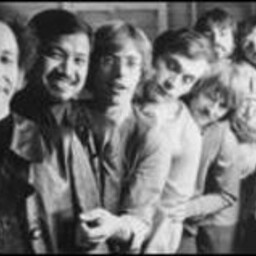
Хотите запечатлеть незабываемые моменты? Доверьте свои фотографии профессионалу! Услуги талантливого фотографа - гарантия качественных снимков и восхитительных портретов.
Информация о артисте
The Neon Philharmonic (formed 1967) was an American psychedelic pop band led by songwriter and conductor Tupper Saussy and singer Don Gant. They released their only two albums (The Moth Confesses and the eponymous The Neon Philharmonic) in 1969, and they scored a Top 20 hit on the Billboard Hot 100 chart with "Morning Girl", when it hit the Top Forty in May of that year and rose to number 17 on the chart. The band hit the charts again with "Heighdy-Ho Princess" in 1970. The group was produced by Saussy, Gant, and Bob McCluskey, and engineered by Ronald Gant, Don's brother. The group disbanded in 1975 after releasing numerous non-album singles. Although the first album stated Borges Forever!, the group's concertmaster is really Pierre Menard, and it is not a reference to the Jorge Luis Borges story Pierre Menard, Author of the Quixote - Saussy was not conscious of the connection.
The bulk of the groups' output was released by Warner Bros./Seven Arts Records. In 1972, they moved to TRX and produced another single, "Annie Poor" / "Love Will Find a Way", after which the group disbanded. The Neon Philharmonic name was sold to producer David Kastle, who put out additional singles released by MCA Records and London Records. At least one Saussy song, "Making Out the Best I Can" was recorded by this group, and engineered by Ronald Gant. Along with its flipside recording, "So Glad You're a Woman", written by Ray Williams and Ron Demmans, 1975), the instrumentation was limited to synthesizers, guitar and drums. These later singles have no other connection to the original group.
Shaun Cassidy, David's younger brother, did a cover version of "Morning Girl, Later" (simply titled "Morning Girl") in 1976, which did not chart in the U.S., but did well in the Low Countries. The song was also covered by The Lettermen. Read more on Last.fm. User-contributed text is available under the Creative Commons By-SA License; additional terms may apply.
The bulk of the groups' output was released by Warner Bros./Seven Arts Records. In 1972, they moved to TRX and produced another single, "Annie Poor" / "Love Will Find a Way", after which the group disbanded. The Neon Philharmonic name was sold to producer David Kastle, who put out additional singles released by MCA Records and London Records. At least one Saussy song, "Making Out the Best I Can" was recorded by this group, and engineered by Ronald Gant. Along with its flipside recording, "So Glad You're a Woman", written by Ray Williams and Ron Demmans, 1975), the instrumentation was limited to synthesizers, guitar and drums. These later singles have no other connection to the original group.
Shaun Cassidy, David's younger brother, did a cover version of "Morning Girl, Later" (simply titled "Morning Girl") in 1976, which did not chart in the U.S., but did well in the Low Countries. The song was also covered by The Lettermen. Read more on Last.fm. User-contributed text is available under the Creative Commons By-SA License; additional terms may apply.

